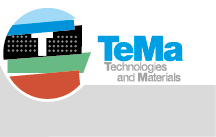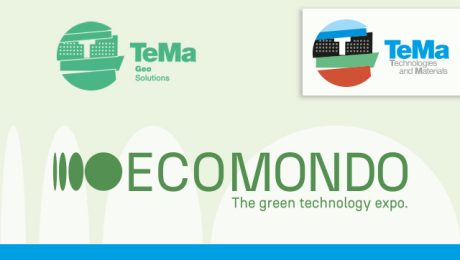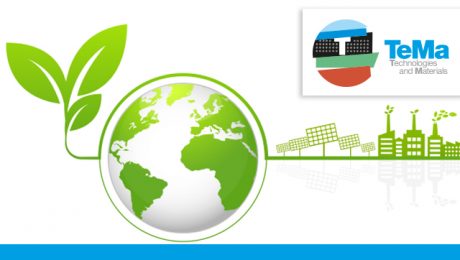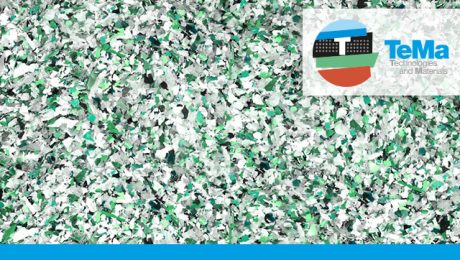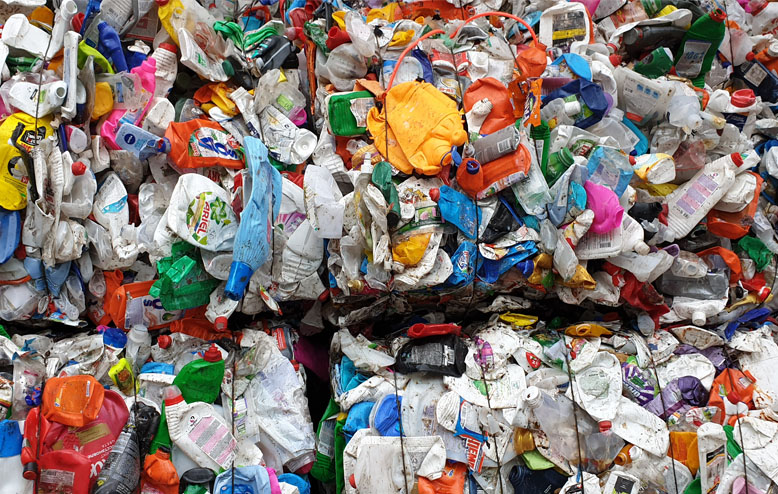Join us at Ecomondo 2023
Climate change and extreme natural events are having an impact on the planet’s life balance. The current international focus on the ecological transition and the circular and green economy is making it more and more imperative to make innovative decisions on this front. This is why our TeMa team of engineers and technicians will be attending Ecomondo 2023 to share with professionals, industry, stakeholders, policy makers, opinion leaders and local authorities just how significant a role our products can play in this green drive.
Ecomondo will be held from 7 to 10 November 2023 at Rimini’s exhibition centre. This is the leading international event on the European calendar for sharing and comparing strategies that will shape the EU’s environmental policy. Which is why it’s important to take part.
There’s a well thought out programme packed with conferences, seminars and workshops. Over the four-day show, the programme will tackle interconnected macro issues:
- Bioenergy.
- Circular and regenerative economy.
- Site and land maintenance.
- Waste as a resource.
- The water cycle.
- Environmental control and monitoring.
TeMa champions renewable energy, recycling and sustainable geotechnical projects.
Over our 30 years in the business, and with ever-growing awareness, TeMa has ventured into the realm of sustainability, presenting environmentally friendly solutions for geotechnical projects.
Since our inception, we’ve specialized in reinforced soil solutions for road embankments or ditches, slopes and hillside terracing, landfills and contaminated sites.
No matter what the situation, even in an urban context, there are always green solutions to take the place of concrete. Our catalogue features products that are as high performance as they are sustainable, like biodegradable matting (including pre-seeded mats), geonets and geomembranes. When it comes to handling, there are considerable CO2 savings: there’s no need for gravel, and the soil required is found on site, so no added carbon footprint.
What’s more, our geogrids have earned their reputation as a key substrate in road construction, built to provide lasting strength and withstand cracks or minor subsidence, resulting in a smoother ride and safer road surface.
Join us! We look forward to showing you some of our past projects from around the globe, and some cost-effective and intriguing solutions, such as a horse racing track produced in South Africa built to cope with pounding hooves, even after rain.
We’ll be attending Ecomondo to showcase our solutions, as well as our business decisions:
Part of our products are made using pre-used plastics we “recycle” in our own plants.
We’ve set up two collection and recycling plants (in Russia and Romania) to handle high-density polyethylene, and polypropylene: we sort the waste material, carry out two grinding and washing cycles, and finish with extrusion and filtration.
…we reuse washing water.
wastewater from the washing process is treated and reused for subsequent processes.
…we invest in renewable energy.
Almost 50% of the energy used in our production processes comes from renewable sources: three photovoltaic systems — with rated outputs of 200 kWp, 150 kWp and 100 kWp — and a cogenerator producing another 800 kWp.
Go here for more details.
Join us at the show!
You can find us from 7 to 10 November 2023 on Stand 506, Hall D1, at Rimini’s exhibition centre.
In the meantime, you can find out more about Ecomondo by checking out the official site: click here.
- Published in CORPORATION, Exhibitions and events, news, TeMa Technologies and Materials
Our approach to green energy
International Energy Saving Day is drawing near and we, being keen to respect the environment by integrating with it rather than forcing it, feel personally involved.
We are experiencing a period in which the issue of energy sources has escalated on a global scale, challenging the plans and forecasts of organisations.
Events have led to a pressing need to ensure that this particularly heartfelt situation, occurring in February 2022, is high on the agenda not only for governments but also for all businesses and families. So, we want to dedicate a few lines to it.
The ‘value’ of energy saving
Everyone knows that by ‘saving energy’ they can reduce energy consumption through all their actions and habits. By re-assessing their production and logistical processes and implementing appropriate technologies, businesses can strive to achieve minimum waste. In doing so, everyone can play their part to protect the planet, which is already somewhat damaged by the serious problems caused by climate change.
Small everyday gestures trigger cultural processes that lead to actions on a larger scale, as in the case of companies. Not out of obligation, but because it starts to be worthwhile… And it’s a real value.
How to pursue the value of sustainability
As previously mentioned, the first step must be taken by those who succeed in changing their habits and choices in order to contribute to this sustainable model, so that everyone can effectively influence decision-makers.
Nowadays, being sustainable means not wasting, not consuming energy unnecessarily by adopting methods and systems that enhance this commitment to sustainability.
Today, TeMa is acknowledged globally for having introduced, since starting out 30 years ago, geomats, geonets, geomembranes and ultra-technological products to retain and protect the soil, reinforcing it and restoring its retention power. Part of the materials used to make them comes from recycled plastic. This process takes place at two of the company’s own recovery plants in Europe. In the most vulnerable environmental situations, TeMa has now put in place biomats and bionets that help the revegetation of areas in the most natural way.
Needless to say, sustainability must be developed by using renewable energy sources that do not pollute the environment.
About 50% of the energy we use in our production processes comes from renewable sources: the IWIS Group, our partner, has three photovoltaic plants: 200 kWp, 150 kWp and 100 kWp.
It is also equipped with a co-generator that can produce an additional 800 kWp. This plant uses the heat naturally discharged by the plants to increase the efficiency of electricity production. The aim is to reduce the Carbon Footprintand CO2emissions.
TeMa Technologies and Materials was founded thirty years ago with a focus on sustainability and research. We will continue at this pace, always improving. After all, it’s our job to find solutions.
- Published in CORPORATION, Research and development, TeMa Technologies and Materials
TeMa Technologies and Materials’ sustainable choice
We started out almost 30 years ago and being environmentally responsible has always been part of our philosophy, partly due to the fact that our headquarters are located less than three kilometres from the core zone of the hills recognized as a UNESCO World Heritage Site, and just over 6 km from the edge of the Cansiglio forest.
So protecting the environment was always going to be one of our key commitments, not just in our manufacturing systems, but also in the innovations implemented in the solutions we offer our customers.
Reinforced soil and CO2 savings
Our engineers have redesigned the reinforced soil system, leveraging the very pressure of the soil retained by geogrids, so as to save millions of cubic metres of concrete and aggregate, which would otherwise have to be carried to the site in hundreds of truckloads. Now it takes just one: a considerable saving in terms of CO2 in line with the goal of reducing the carbon footprint, which is the total amount of greenhouse gas emissions generated by a product or a process.
Our geonets and geogrids are made partly from recycled plastic sourced from facilities that are controlled to ensure the resulting plastic meets our standards. A substantial difference in terms of both the collection of material to be recycled and conditioned, and the recycling procedure itself (the material in question is high-density polyethylene, and polypropylene, which comes from bottles, containers, capsules and so on), as well as its preparation, for which – in order to ensure quality – we have set up two plants: EcoTeMa in Russia and Replastica in Romania.
A sustainability journey that TeMa has embarked on and is committed to pursuing further, continuing to invest in technologies and systems with a view to achieving zero emissions by 2050.
Our recycling production process
Material sorting: only materials that meet preset standards in terms of quality and type make it to the next stage. The sorted material is first shredded and then washed, then shredded and washed again. Only then does it qualify as a “raw material” ready to be turned into granules and then extruded and used in TeMa production processes.
It is supplied to our facilities across the Group for them to make into products to be introduced into the market in line with the specifications laid out by designers and in compliance with the legal requirements in the individual countries.
Where does the washing water end up?
The water used for washing is also reused once suitably treated. The portion of water not used is disposed of in compliance with specific government standards on environmental impact.
Renewable energy
Along with plastic recycling and a focus on reducing the amount of carbon dioxide released into the atmosphere, the IWIS Group has installed 3 photovoltaic systems of its own – with rated outputs of 200 kWp, 150 kWp and 100 kWp – as well as a cogenerator, together producing 50% of the energy used in manufacturing.
If you wish to receive information about it, CONTACT US.
- Published in CORPORATION, Research and development, TeMa Technologies and Materials
